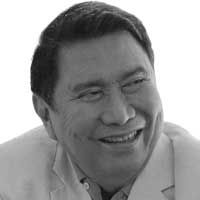Wanted: Nurses

The Philippine government has an existing yearly cap that limits the deployment of health care workers abroad to 7,500 people.
I can see that the shortage of nurses has reached critical levels, but I feel that the deployment cap is unconstitutional. The right of a person to travel and work abroad cannot be curtailed.
According to DOH, the country has 106,0000 unfilled health care vacancies. Thus, it is ironic that last year alone 22,895 health care workers left the country to work abroad.
The personnel shortfall includes not only doctors, but medical technologists, pharmacists, physical therapists and midwives as well. The problem, though, is most acute in the nursing profession. After all, nurses are the ones recruiters from foreign countries are focusing on.
It is not easy to become a nurse. After spending a fortune taking the four-year course, graduates must pass the Nurses Licensure Examination. Only 6,616 out of 9,729 made it in May last year.
The high mortality rate makes review centers a money-making proposition. One proprietor must have made such a fortune that he ran for the Senate in the last elections. A decent campaign for the position requires tens of millions of pesos. Apparently, he had that kind of money. He did not make it, though.
* * *
None can blame the nurses for wanting to leave the country.
A nurse starts with a salary equivalent to P750,000 in the United Kingdom or the UK. That goes up as she gains more experience and skill.
The UK’s health care system would collapse without the Filipino nurses manning hospitals in England, Scotland, Northern Ireland and Wales.
Aside from the UK, the top destinations of Filipino nurses include many countries in the Middle East, such as oil-rich Saudi Arabia, the United Arab Emirates and Dubai.
However, to these health care professionals, the oil-rich countries are only a part of the journey. The ultimate goal is the US and Canada.
* * *
If I may digress, the first COVID-19 vaccine in the UK was administered by a Filipino-British nurse, May Parsons, at Coventry Hospital in London. She was awarded the George Cross medal by the late Queen Elizabeth and the then Prince of Wales for her services.
Despite the foreign-sounding name, Parsons is a full-blooded Filipina. That’s my impression, at least. She must have married a Briton.
Since then, she has been visiting the Philippines to recruit nurses for her adopted country.
* * *
Nurses feel unappreciated in the Philippines. In the past two years, when the COVID-19 pandemic was raging, nurses were at the frontlines, battling the scourge 24 hours a day.
While teachers stayed at home on full pay, nurses and other health care professionals were not even allowed to rest on weekends. Hospital administrators gave them a day off only reluctantly.
Anybody who has been to a hospital knows that nurses interact with patients more than doctors. A doctor makes his rounds once a day. The nurses are on call during their shifts, ready to attend to the whims and complaints of every patient.
But nurses are paid very little. A new hire gets as low as P12,000 a month. They had to pry their hazard pay from the hands of an uncaring government, and they still had to work to save the lives of others while risking their own.
I suppose more nurses died from COVID-19 than soldiers and cops from fighting criminals.
Most women in developed countries want a life of ease, travel and luxury. Many girls fresh out of high school go to college to take up fashion design, public relations and other related courses. They cannot imagine changing bedpans for the sick and the elderly.
Come to think of it, daughters of Filipino nurses who have made it to North America don’t want to follow in their parent’s footsteps, either. With many choices available, they have developed a distaste for that kind of work.
* * *
Filipino workers are in demand because they speak English.
Communication is the key in all professions. That is very true in health care, where the administration of procedures and drugs means the difference be-tween life and death. A health care system cannot afford a nurse who misunderstands instructions, verbal or written.
Those who have settled in countries where the profession offers a pathway to citizenship will not come back to the Philippines, not after the shabby treat-ment they get from the government. A short vacation, perhaps, but that’s it.
* * *
Once again, some of our cops have been caught red-handed as criminals. Police Staff Sergeant Ed Dyson Banaag of the Philippine National Police-Drug Enforcement Group (PDEG) main office at Camp Crame was arrested during an operation executed by the Regional Intelligence Division-Regional Drug Enforcement Unit (RID-RDEU) in Santa Cruz, Manila on Jan. 16, Monday night. They seized the following from him: 25 grams of suspected shabu worth P170,000, his service firearm, a PNP identification card and the boodle money used for the transaction.
Staff Sergeants Raymund Portes and Jerry Saratobias Jr., of the Criminal Investigation and Detection Group (CIDG), were also arrested for allegedly trying to intervene in the investigation of the arresting officers. It would seem that much more needs to be done to clean up the PNP aside from the recent request for courtesy resignations. Indeed, many senior officers have complied with the request. The problem is that the whole institution is riddled with corruption on all levels.
- Latest
- Trending





























